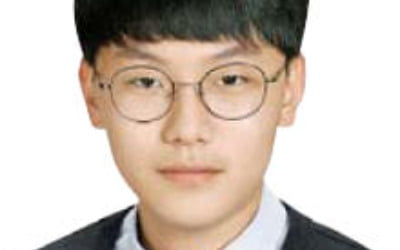#동성애
-
생글기자
How to Reduce Homophobia in Korea
Since the WHO removed homosexuality from its list of diseases in 1990, the developed world has been exhibiting more tolerance to the LGBTQ community than ever. However, South Korea remains LGBTQ-unfriendly despite its recent UNCTAD classification as a developed country.The grounds behind Korea’s stunt growth in LGBTQ tolerance may be of the following reasons.Christianity is a common cause of homophobia not only in Korea but in many countries. If there is a difference, religious groups in South Korea are highly influential in the political world. This discourages politicians from pursuing LGBTQ-friendly policies such as the anti-discrimination law.Confucianism is deeply rooted in Korean society, influencing many parts of life ranging from moral precepts to family traditions. This causes the Korean society to be less tolerant of LGBTQ culture mainly because of concerns about ‘keeping the family intact’.The model of an ideal family in the Confucian value system is highly patriarchal. The son becomes the ‘head of the household’ once his parents grow old, becoming responsible for taking care of his parents and siblings as the ‘breadwinner’ of the family. However, many view gay or transgender individuals as incapable of this position since they are considered financially unstable and incapable of social success.Another influencing factor is that LGBTQ identity evades core Confucian values related to filial piety. A famous quote from 《The Classic of Filial Piety》, “身體髮膚 受之父母 不敢傷 孝之始也”, states that “Your body, including hair and skin, is what you inherited from your parents; preserving them is the beginning of your duty towards them.” In the context of this teaching, ‘changing’ the gender genetically inherited from your parents can be considered a serious disrespect towards them.South Korea needs more laws that restrict the lobbying of religious groups. Political
-
생글기자
동성애 찬반논란은 어떻게 봐야할까
지난 7월14일 토요일, 서울시청광장에서 ‘서울퀴어문화축제’라는 명칭의 성 소수자 축제가 열렸다. 19번째로 열린 이번 서울퀴어문화축제는 ‘퀴어라운드(Queeround)’라는 슬로건으로 진행됐다. 이 슬로건은 ‘퀴어는 어디에나 있다’ ‘성에 대한 분란이 끝나길 바란다’는 의미가 담겨 있다. 2000년 50여 명의 참여로 시작한 서울퀴어문화축제는 올해로 12만 명이 참여하는 등 그 규모가 해마다 커지고 있다.한편 서울퀴어문화축제가 열린 서울시청광장 근처 대한문 앞에서는 잘못된 성문화가 우리 사회를 망친다며 동성애를 반대하는 ‘동성애 퀴어축제반대국민대회’가 동시에 열렸다. 참석자들은 무엇보다 “동성애의 위험성을 국민에게 바로 알리고 성 소수자들을 동성애에서 벗어나도록 돕는 것이 최우선 과제”라고 강조하며 기도회를 열었다. 기도회가 끝난 뒤 참석자들은 ‘결혼은 한 남자와 한 여자의 결합’이라는 문구가 새겨진 대형 현수막을 들고 퍼레이드를 했다. 대한문광장에서 시작한 퍼레이드는 숭례문을 돌아 시청과 광화문 일대 등 약 4㎞ 구간을 행진하며 동성애 반대를 외쳤다.동성애 합법화에 대해선 다른 여러 나라와 마찬가지로 우리나라에서도 찬성과 반대가 팽팽하다. 찬성 측은 동성애자라는 이유만으로 대한민국이 국민에게 부여하는 혜택을 가로막는 것은 인권 침해이고, 사회적 소수자에 대한 출신지, 성적 취향, 종교, 신념에 의해 권리를 부인당하거나 처벌 위협을 받아서는 안 된다고 주장한다.반면 반대 측은 헌법과 민법 등 관련 법은 구체적으로 성 구별적 용어를 사용해 혼인은 남녀 간 결합이라는 점을 기본전제로 하고 있
-
생글기자
동성애로 인해 불거지는 다양한 문제점들
동성애가 처음으로 공론화되기 시작한 이후로 수십 년 동안 이에 대한 찬반 문제는 꾸준한 논쟁거리였다. 사랑은 이성 간에 이루어지는 것이 당연했던 시절 동성애에 대한 사회적 시선은 당연히 곱지 않았다. 이런 의식을 타파하기 위해 많은 동성애자들 및 인권 운동가들이 대중에 다양한 방법으로 호소해왔고, 그 덕에 현재 인식은 과거와는 많이 바뀐 편이다. 다만 최근 들어서 달라진 것은 동성애의 또 다른 문제점이 부각되기 시작했다는 점이다. 동성끼리의 사랑 자체를 ‘더럽다’고 생각하던 분위기는 줄어들었지만, 이로 인해 발생하는 현실적 문제가 뒤늦게 발견됨에 따라 이어진 결과이다.동성애에 대한 사회적 시각이 좀 더 관대해지긴 했지만, 사회 통념이나 법적으로 허용된 상태까지는 아니다. 문제는 사회적 시선에서 자유로워지기 위해 사랑하지도 않는 이성을 이용하는 동성애자들이다. 자신의 연인 혹은 배우자가 자신을 사랑해서 만난 게 아니라 동성 연인을 숨기기 위해 어쩔 수 없이 만난 것이라는 사실을 깨닫고 충격에 빠진 사람들의 사례는 종종 발견되고 있다. 또한, 이 문제는 남성 동성애자 간 애정 행위와 에이즈 전염 사이에 밀접한 관련이 있음이 밝혀진 후 더욱 논란이 되고 있다. 에이즈 감염 경로는 60%가 이성애, 40%가 동성애에서 비롯된다고 한다. 이성애자에 비해 동성애자의 수가 한참 적은 것과, 동성애를 통한 에이즈 감염자가 이성애에서 상대방에게 옮겼을 확률 등을 계산하면 동성애 경험이 없는 사람이 에이즈에 감염될 확률은 약 0.001%지만, 동성애 경험이 있는 사람일 경우 100배인 0.1%에 달한다는 것이다. 이에 대한 논란으로 인해 동성애자들이 성적으로 문



